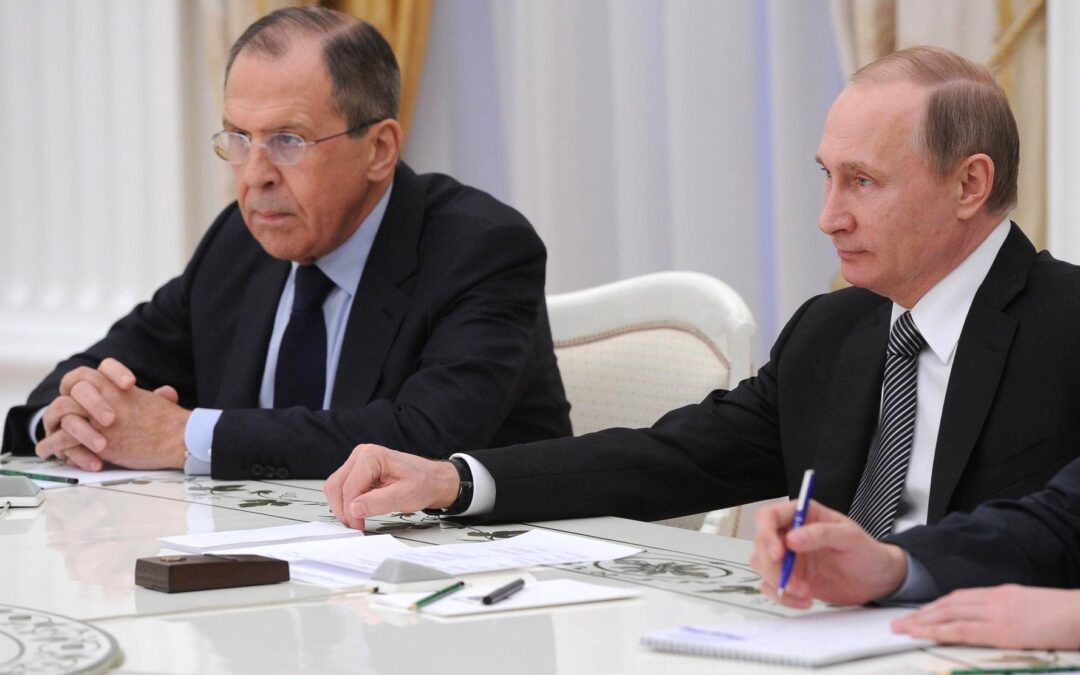Keep our news free from ads and paywalls by making a donation to support our work!

Notes from Poland is run by a small editorial team and is published by an independent, non-profit foundation that is funded through donations from our readers. We cannot do what we do without your support.
Russia has ordered Poland to close its consulate in the Siberian city of Irkutsk in retaliation for the “hostile and unjustified” decision to shut Russia’s consulate in Gdańsk. Warsaw made that move in response to evidence that Russia was behind the sabotage of a Polish rail line earlier this month.
The decisions mean that, by the end of December, neither country will have any consulates operating in the other, leaving only their embassies open.
Jak można się było spodziewać, Rosja zamknęła Konsulat Generalny RP w Irkucku.https://t.co/YQ4xZhVQ51
— Anna Maria Dyner (@Anna_M_Dyner) November 27, 2025
On Thursday, the Russian foreign ministry announced that it had summoned Polish ambassador Krzysztof Krajewski to hand him a note informing Poland that, in response to the closure of the Gdańsk consulate, it was ordering the reciprocal closure of the Polish diplomatic facility in Irkutsk.
The two consulates are the last ones each country is operating in the other. Previously, Poland ordered Russia to close its consulates in Poznań and Kraków due to Moscow’s campaign of sabotage. Russia responded by closing Poland’s consulates in Saint Petersburg and Kaliningrad.
In its announcement today, the Russian foreign ministry called Poland’s decision to close the Gdańsk consulate “an openly hostile and unjustified step”, reports the TASS news agency.
“The Russian side once again reminds those who, for the sake of momentary political expediency, are seeking unfriendly attacks against our country: the Russian Federation will not allow such actions to go unanswered,” it added.
At the time of writing, Poland’s foreign ministry had not commented on Russia’s decision. However, Tomasz Siemoniak, the minister in charge of Poland’s security services, said that Warsaw “had expected this”.
“It is simply a reaction to our actions, although our actions were related to the fact that we have no doubt that the Russian security services are responsible for the acts of sabotage, including the recent ones, hence the consulate’s closure,” said Siemoniak, quoted by the Wirtuana Polska news website.
He noted that the consulate in Irkutsk has played an important role of its connection to the history of Poles exiled by the Soviets to Siberia.
Poland’s ambassador to Russia has been attacked in Saint Petersburg by a group protesting Polish support for Ukraine https://t.co/5IEw0YlRWJ
— Notes from Poland 🇵🇱 (@notesfrompoland) November 20, 2025
On 16 November, damage was discovered at two points on a rail line running between Warsaw and the eastern city of Lublin. The following day, Prime Minister Donald Tusk confirmed that it had been caused by sabotage, including through an explosive device.
On 18 November, Tusk announced that the attack had been carried out by two Ukrainians working on behalf of Russia, who then immediately fled over the border into Belarus.
Prosecutors have drafted charges against the pair and Poland issued a diplomatic note to Belarus asking that it hand them over. However, given Belarus’s close relationship with Russia, the prospects of extradition appear slim. This week, another Ukrainian man was charged with assisting the saboteurs.
Poland has in recent years been hit with a series of acts of sabotage carried out by operatives – often Ukrainians and Belarusians – recruited by Russia.
Poland has ordered Russia to close its consulate in Gdańsk in response to last week's sabotage of a rail line by agents working for Moscow.
It means that all of Russia's consulates in Poland have now been shut, with only the embassy in Warsaw remaining https://t.co/Ba0ALlhcpA
— Notes from Poland 🇵🇱 (@notesfrompoland) November 19, 2025

Notes from Poland is run by a small editorial team and published by an independent, non-profit foundation that is funded through donations from our readers. We cannot do what we do without your support.
Main image credit: Kremlin/Wikimedia Commons (under CC BY 4.0)

Daniel Tilles is editor-in-chief of Notes from Poland. He has written on Polish affairs for a wide range of publications, including Foreign Policy, POLITICO Europe, EUobserver and Dziennik Gazeta Prawna.


















